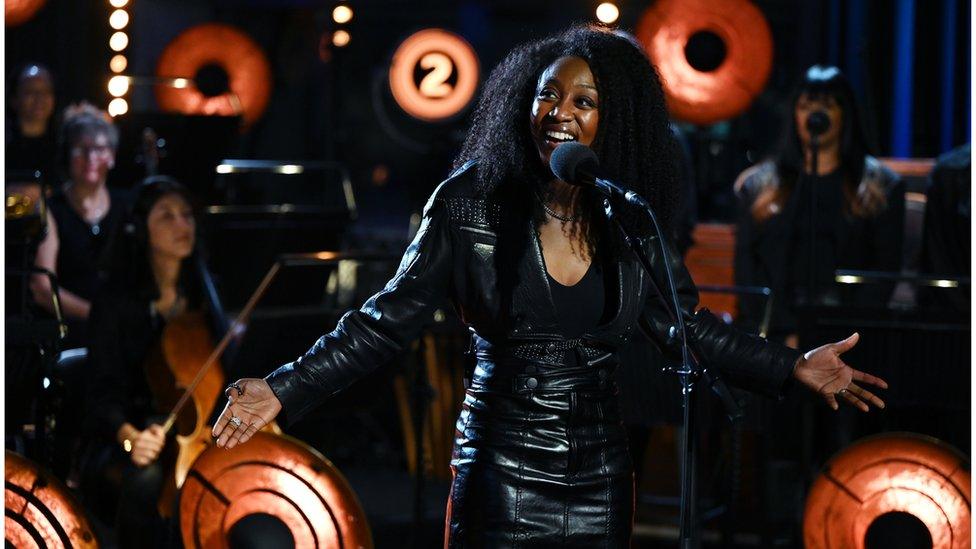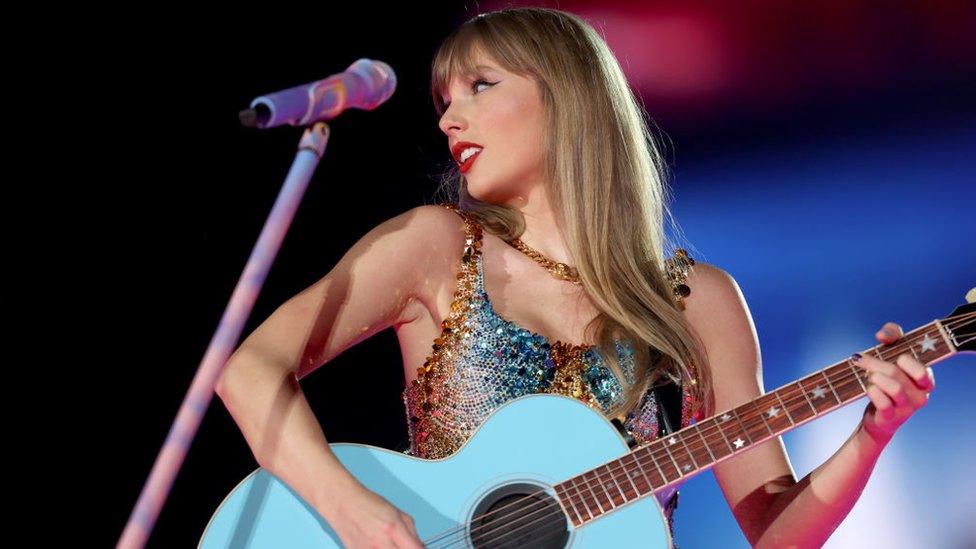Keir Starmer vows to cap resale music and sport ticket prices
- Published
- comments

Singer Beverley Knight is backing Labour's plan to widen access to the arts
Labour will cap the resale prices of tickets and regulate resale platforms if the party wins the next general election, Sir Keir Starmer has said.
The plans will clamp down on ticket touts who rip off music and sports fans going to live events, Sir Keir said.
He also set out ambitions to boost the arts, adding the Tories thought "working people don't need culture".
The Conservatives warned the arts would "suffer" under Labour, saying the party would "trash the [country's] finances".
Culture Secretary Lucy Frazer said the party had helped "unleash job creation, investment and growth with tax relief on everything from film and television, to animation, video games, orchestras, theatres and more".
In his speech at the Guildhall School of Music and Drama in central London, Sir Keir said access to culture could not be "at the mercy of ruthless ticket touts who drive up the prices".
Fans needed to be able to see the acts they loved "at a fair price", he added.
Currently, the resale of football tickets is outlawed unless it is approved by the match organisers. But otherwise there is no law against reselling tickets in the UK, although individual organisation may prohibit it.
In May 2023, the Department for Business and Trade decided against implementing recommendations from the Competition and Markets Authority (CMA) to crack down on professional touts, including measures to block the bulk-buying of tickets.
Business Minister Kevin Hollinrake said broader changes to consumer law should take precedence over legislation against touting, and suggested websites allowing limitless prices to be charged "may still provide a service of value to some consumers".
On Wednesday, two people were convicted of fraudulent trading in relation to a Norfolk-based firm which sold tickets worth more than £6.5m on secondary ticketing sites in two and a half years.
Labour said reselling tickets for profit had already been banned in many countries, but fans were being let down.
Too often, it added, genuine fans were missing out on getting tickets only to see them on secondary ticketing websites at far higher prices, putting them out of reach.
'Patronising'
As well as capping resale prices, Labour said it would restrict the number of tickets individual resellers could list, and give the CMA the powers it needed to take swift action against platforms and touts who broke the rules.
Adam Webb, campaign manager at FanFair Alliance, which works against online ticket touting, welcomed the measures as having the potential to break the cycle of a "completely artificial" secondary ticketing market, reliant on a relatively small number of touts, many of them based outside the UK.
During his speech, Sir Keir also attacked what he called "a patronising view that working people don't care, shouldn't care about the arts".
Labour highlighted the importance of creative industries to the UK economy, saying they contributed more to the UK economy than the life sciences, aerospace and automotive industries combined, with total revenues of arts businesses reaching £140bn in 2022.
Asked how boosting access to the arts would be funded, Sir Keir said he could not pretend Labour would "turn on the taps straight away", but said the party could widen the national curriculum to focus more on sport and arts subjects.
Creatives backing the plan include artist Damien Hirst, singer Beverley Knight, and actor and Happy Valley star James Norton.
Hirst said: "When I grew up in Leeds, I didn't have any money. I had free school dinners, I had a good art teacher, and luckily I managed to get a government grant to go to art school and Goldsmiths which changed my life.
"Art has the power to change lives as it did mine."
Knight said she supported the ambition "to allow all children to pursue their passions in the creative space, because I was one of those children."
Ms Frazer said the Conservative Party was "sticking to our plan for growth" while "Labour's record speaks for itself".
"In Wales, the Labour government are making significant cuts to the arts as a result of their financial mismanagement.
"There is no doubt that a UK Labour government would do the same, taking us back to square one and putting our world-leading creative industries at risk."
Related topics
- Published14 March 2024
- Published13 July 2023

- Published10 March 2023
